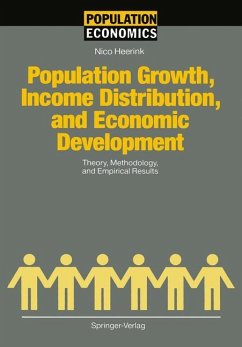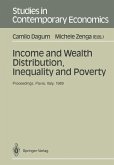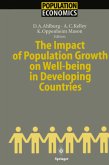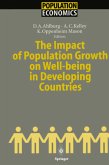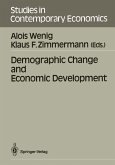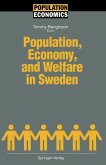In this book, a model of long-term interrelationshipsbetween income distribution, population growth and economicdevelopment is developed and estimated from data for 54countries. The results indicate that a reduction of incomeinequality leads to lower fertility and mortality, toimprovedbasic needs satisfaction, and to lower labour forceparticipation of young and old males and of females in Asiaand Africa. The effect of income distribution on saving andconsumption is found to be negligible. These outcomessuggest that family planning and health policies in LDCswill show better results when they are supplemented withpolicies aimed at makingthe poor benefit from economicgrowth. As regards development policy, the results indicatethat a reduction of income inequality does not impair theformation of physical capital, but enhances the formation ofhuman capital and lowers the growth rate of the labourforce.
Bitte wählen Sie Ihr Anliegen aus.
Rechnungen
Retourenschein anfordern
Bestellstatus
Storno

